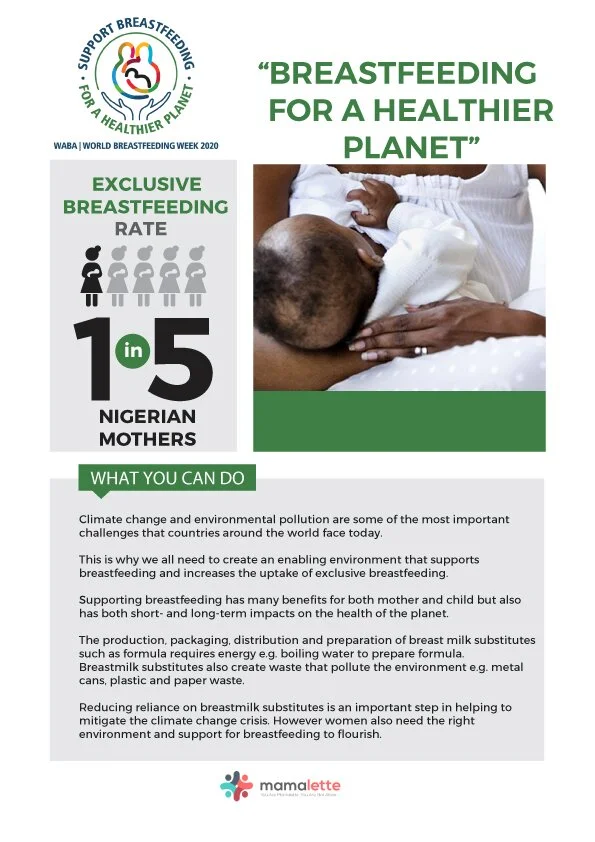Every year, World Breastfeeding Week highlights the health and wellbeing benefits of breastfeeding for babies and their mothers.
Climate change and environmental pollution are some of the most important challenges that countries around the world face today. This year, World Breastfeeding Week 2020 is focusing on the role of breastfeeding to protect the environment, its importance for both the planet and its people.
The level of CO2 (Carbon dioxide) in the atmosphere has risen significantly in the last few decades and this continuing rise is attributed to the burning fossil fuels for energy (Coal, oil, and natural gas are examples of fossil fuels). This rise has resulted in global warming with resulting impacts such as increased rainfall, flooding and extreme weather events.
The production, packaging, distribution and preparation of breast milk substitutes such as formula requires energy e.g. boiling water to prepare formula. Breastmilk substitutes also create waste that pollute the environment e.g. metal cans, plastic and paper waste.
On the other hand, breastfeeding uses few water or land resources, produces no carbon emissions and minimal or zero waste. It also suppresses ovulation in women, helping to reduce family sizes and keep families healthy, which can further protects the impact of a growing population on the Earth’s resources.
 Reducing reliance on breastmilk substitutes is an important step in helping to mitigate the climate change crisis. However women also need the right environment and support for breastfeeding to flourish.
Reducing reliance on breastmilk substitutes is an important step in helping to mitigate the climate change crisis. However women also need the right environment and support for breastfeeding to flourish.
Supporting breastfeeding has many benefits for both mother and child but also has both short- and long-term impacts on the health of the planet. Breastfeeding also results in good nutrition, protection against infection, poverty reduction and increased food security.
This is why we all need to create an enabling environment that supports breastfeeding and increases the uptake of exclusive breastfeeding and breastfeeding in Africa.













